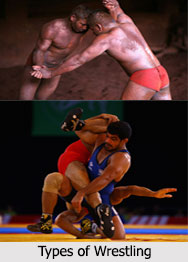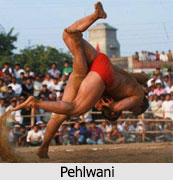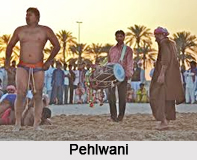Wrestling, a sport deeply ingrained in India's cultural and historical fabric, has a lineage that dates back centuries. With its origins rooted in ancient texts and mythologies, Indian wrestling, or 'kushti' as it is locally known, has evolved into a fiercely competitive and celebrated sport. This article delves into the history of wrestling in India, shedding light on its evolution and the remarkable achievements of some of the nation's most renowned wrestlers.
Historical Roots
The roots of wrestling in India are entwined with the country's rich mythological and historical narratives. References to wrestling can be found in ancient texts like the Mahabharata and Ramayana, where valorous warriors engaged in the sport as part of their training. The sport's ancient form, known as 'Malla Yuddha,' was a combination of physical prowess and strategic acumen, making it an integral part of warrior culture.
Evolution of Kushti
Over the centuries, kushti underwent transformations, merging indigenous techniques with influences from Persian and Mongolian wrestling styles. Traditional akhadas (wrestling training centers) became the nurturing ground for wrestlers, not only in terms of physical training but also in terms of values like discipline, dedication, and respect. Wrestlers, or 'pehlwans,' adhered to a strict regimen, often living austere lives to maintain peak physical condition. Traditional Sports
Pioneering Achievements
India boasts a long line of wrestlers who have not only excelled on the domestic front but have also made their mark on the international stage. One such trailblazer was Gama Pehlwan, hailed as one of the greatest wrestlers of all time. Gama's feats are legendary, from remaining undefeated in his career that spanned several decades, to even accepting challenges from international wrestlers and strongmen. His legacy continues to inspire wrestlers in India and beyond.
Modern-Day Icons
In recent decades, Indian wrestling has seen a resurgence, with athletes achieving remarkable feats in various international competitions, including the Olympics. Sushil Kumar, a two-time Olympic medalist, brought wrestling to the forefront of Indian sports consciousness with his bronze and silver medal wins in 2008 and 2012, respectively. His achievements sparked a renewed interest in the sport, inspiring a new generation of aspiring wrestlers.
Another name that shines brightly is Bajrang Punia. With numerous international titles under his belt, including World Championships and Commonwealth Games gold medals, Bajrang is a symbol of the relentless determination that defines Indian wrestlers. His agility and technique have earned him a reputation as one of the best in the world.
Vinesh Phogat's journey is equally inspiring. Hailing from a family deeply rooted in wrestling, Vinesh overcame adversity and injury to become the first Indian woman wrestler to win a gold medal at the Asian Games. Her success has been pivotal in changing societal perceptions of women in sports and has encouraged a growing number of young girls to pursue wrestling.
A Global Force
Indian wrestling's achievements extend beyond the mat. The annual 'Dangal' competitions draw massive crowds and provide a platform for emerging talent to showcase their skills. The rise of the Pro Wrestling League has further amplified the sport's popularity, allowing wrestlers from various countries to compete in an exciting team format.
Wrestling in India is a testament to the country's enduring traditions and its ability to adapt and excel in the modern world. From its mythological origins to the achievements of contemporary wrestlers, the sport has etched its place in India's cultural mosaic. As Indian wrestlers continue to make their presence felt on the global stage, the legacy of kushti grows stronger, inspiring generations to embrace the values of discipline, dedication, and determination.
.jpg)






